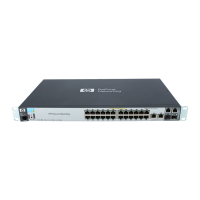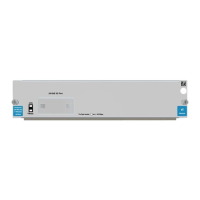Introduction
HP NonStop SQL/MP Programming Manual for C—429847-008
1-2
Declaring and Using Host Variables
Declaring and Using Host Variables
A host variable is a C variable with a data type that corresponds to an SQL data type.
You use host variables to provide communication between C and SQL statements and
to receive data from a database or to insert data into a database.
You declare host variables in a Declare Section in the variable declarations part of your
program. A Declare Section begins with the BEGIN DECLARE SECTION directive and
ends with the END DECLARE SECTION directive. In this example, host_variable1,
host_variable2, number and name are host variables.
EXEC SQL BEGIN DECLARE SECTION;
int host_variable1; /* int host variable */
char host_variable2[19]; /* char host variable */
struct host_variable_names
{
long number; /* long host variable */
char name[31]; /* char host variable */
} hv_names;
...
EXEC SQL END DECLARE SECTION;
The C compiler accepts the CHARACTER SET clause in a host-variable declaration to
associate a single-byte or double-byte character set such as Kanji or KSC5601 with a
host variable.
When you specify a host variable in an SQL statement, precede the host variable
name with a colon (:). In C statements, you do not need the colon, as shown:
EXEC SQL SELECT column1 INTO :host_variable1 FROM =table
WHERE column1 > :host_variable2;
strcpy(new_name, host_variable1);
For more information, see Section 2, Host Variables.
